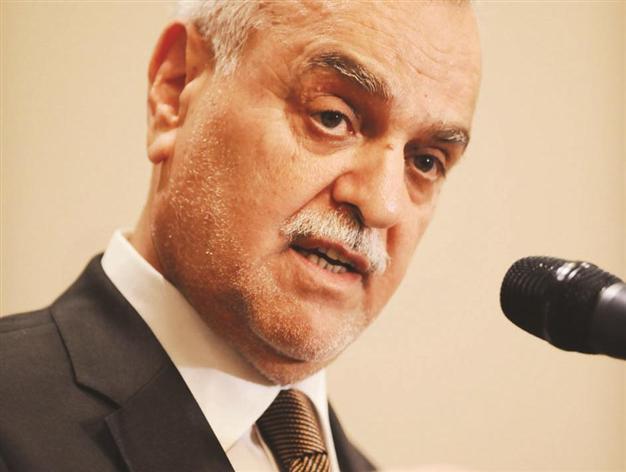Police state prevents reform in Iraq, claims al-Hashemi
ISTANBUL / BAGHDAD

Iraqi Vice President Hashemi speaks during
a news conference in Istanbul in this photo. DAILY NEWS photo, Emrah GÜREL
Iraq needs a new change and reform process, but this is not possible due the an existence of a “police state,” Iraqi Vice President Tariq al-Hashemi has said.
Speaking at a conference in Istanbul on June 2, al-Hashemi said the failure in reforms in Iraq stemmed from people not governing themselves and that nothing had happened in the country after the reform process in 2003.
A second reform period has not been started, even though nine years have passed since the first period, al-Hashemi said. “From my point of view, there are two phases for a country’s transformation. The first one is to erase the dictatorial regime, and the second one is to make reforms. But Iraq now seems to be a police state,” al-Hashemi said, adding that there were sectarian and race discriminations in the country.
Warning from Shiite clericMeanwhile, a top Iraqi Shiite cleric has issued a ruling forbidding voting with secular individuals, an apparent statement of support for Iraq’s embattled premier, who is facing threats of a no-confidence vote “It is haram (forbidden by Islam) for any part of Iraq’s ruling (authorities) to vote on the side of a secular person,” Grand Ayatollah Kadhim al-Hairi said in a written answer to a question from one of his followers about voting with secularists amid the current political crises in Iraq. The secular, Sunni-backed Iraqiya bloc is seeking to convince Iraqi President Jalal Talabani to initiate a vote of no confidence in Shiite Prime Minister Nouri al-Maliki.
Significantly, al-Hairi, an Iraqi who is based in Iran’s holy city of Qom, is the main cleric followed by supporters of Muqtada al-Sadr, the head of a powerful parliamentary bloc which has previously criticized al-Maliki as a “dictator” hungry for acclaim.
Barzani’s remarksKurdistan Regional Government (KRG) leader Masoud Barzani also said that there were still people in Baghdad with an “Anfal” mentality, referring to the al-Maliki government. Anfal was involved a series of attacks against the Kurds in the late 1980s by former Iraqi President Saddam Hussein’s regime. Barzani was speaking at a ceremony in which the remains of 730 Kurdish people were returned to their homeland in Suleymaniyah last week.
Compiled from AA and AFP stories by the Daily News staff.
